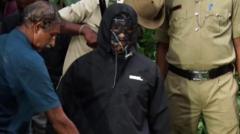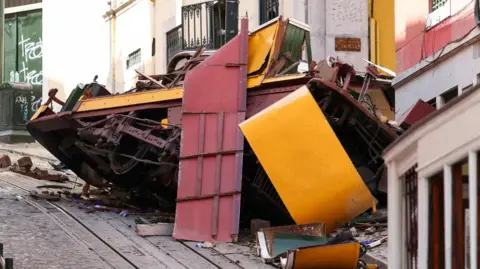A whirlwind of allegations and investigations has engulfed Dharmasthala, a revered temple town in Karnataka, India. Police have arrested a man who claimed he was coerced into burying the bodies of hundreds of women who were reportedly raped and murdered. His shocking assertions sent ripples through this small community, known for its historic temple dedicated to Manjunatha Swamy, drawing thousands of pilgrims daily.
The man, whose identity remains concealed, was arrested under charges of perjury following reports he filed earlier this year. Describing himself as a former temple cleaner from 1995 to 2014, he alleged under oath that he was forced to dispose of many victims' bodies in the vicinity. His testimony mentioned several specific incidents but did not name any individuals, directing blame towards the temple administration, which has vehemently denied the accusations calling them "false and baseless."
Amid rising tensions, the local government established a Special Investigation Team (SIT) to probe the man’s claims, which has since sparked heated debates in the state's political arena. This resulted from public outcry following media attention on the disturbing allegations, prompting the Women's Commission to intervene.
The SIT has been actively conducting searches in and around Dharmasthala based on the alleged burial sites, where human remains have recently been uncovered. Although the man presented a human skull as purported evidence, officials have stated its origin conflicts with his claims, raising doubts about the veracity of his story.
The controversy impacts not only public sentiment but also the reputation of the Heggade family — the temple's custodians. Chief administrator Veerendra Heggade, who is also a prominent political figure in the country, expressed confidence in the SIT inquiry and called for the truth to be revealed.
As political discourse heats up, Home Minister G Parameshwara emphasized the need for transparency, stating, "Shouldn't the truth come out?" The situation in Dharmasthala continues to evolve as the investigation unfolds, with significant implications for the temple's community and reputation.





















